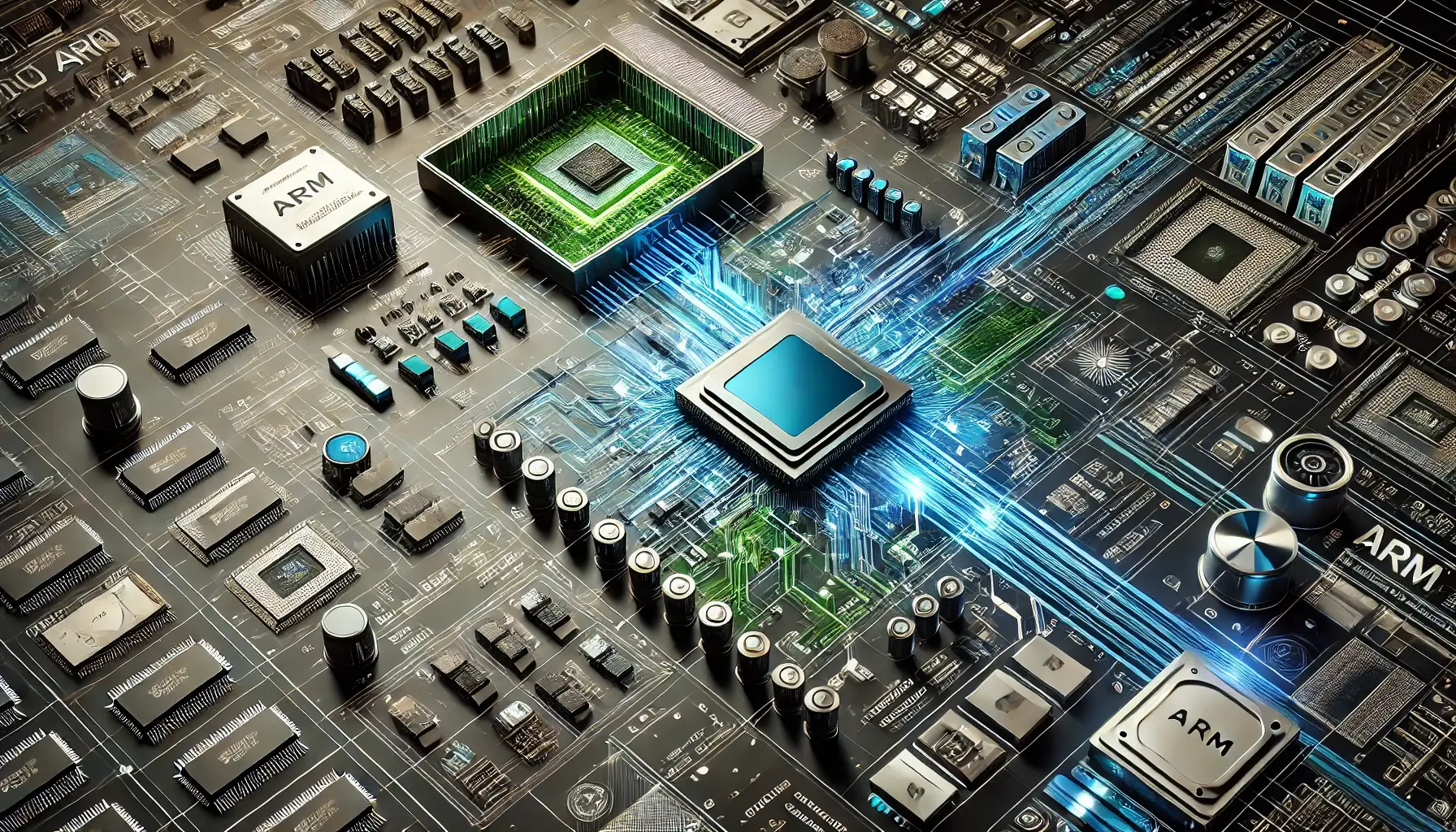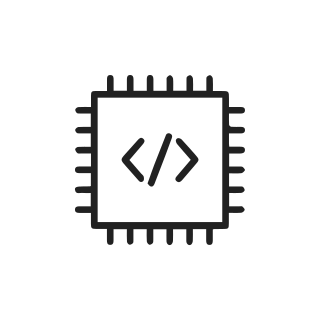
We use industry-standard ARM development tools, including ARM's toolchain and popular IDEs. Specific details will be provided at the start of the course.


ARM Course
ARM (Advanced RISC Machine) course is designed to provide you with in-depth knowledge and practical skills in ARM architecture and programming. ARM processors are ubiquitous in mobile devices, embedded systems, and increasingly in server and desktop environments, making this knowledge essential for modern computing professionals.
Key aspects of ARM and our course include:By completing this ARM course, you'll be well-prepared to develop software for a wide range of ARM-based systems, from small microcontrollers to complex mobile devices and servers.
Ch. 1
Introduction to Embedded Development
Ch. 2
The ARM Architecture
Ch. 3
The Development environment
Ch. 4
Dealing with hardware registers
Ch. 5
GPIO General Purpose Input Output
Ch. 6
High resolution Timers
Ch. 7
Pulse-width modulation PWM
Ch. 8
UART- RS232 Serial Communication
Ch. 9
(The Inter Integrated Circuit (I2C
Ch. 10
(Serial Programming Interface(SPI
Ch. 11
Working with FPGA’s
Ch. 12
The Real-Time Clock RTC
Ch. 13
The Analog to Digital Converter ADC
Ch. 14
The Watchdog Timer WDT
Ch. 15
The Memory Management Unit MMU
Ch. 16
The Network interface Driver
Ch. 17
Debugging & Tracing

Benny Cohen
Embedded Academy Founder and CEO
As a long-time veteran in the technology industry, Benny Cohen combines a deep passion for technology with extensive field experience. With a B.Sc. in Electronics Engineering and an M.Sc. in Communication Engineering, he has spent over 20 years developing software and hardware systems, including the last few years focusing on the cybersecurity industry. In addition to his role as the company founder & CEO, Benny also operates as a hands-on practitioner who specializes in penetration testing and has conducted significant security assessments for leading enterprises and security companies worldwide. His approachable teaching style and real-world expertise make learning both engaging and relevant.
We use industry-standard ARM development tools, including ARM's toolchain and popular IDEs. Specific details will be provided at the start of the course.
While we cover ARM from the basics, prior knowledge of general computer architecture concepts is beneficial.
We cover concepts applicable to various ARM architectures, with a focus on the widely used ARMv7 and ARMv8 families.
While not focused on app development, this course provides the low-level understanding crucial for optimizing mobile applications on ARM platforms.
We introduce ARM's role in server computing, but the primary focus is on embedded and mobile applications.
News, insights, and learning resources from Embedded Academy
